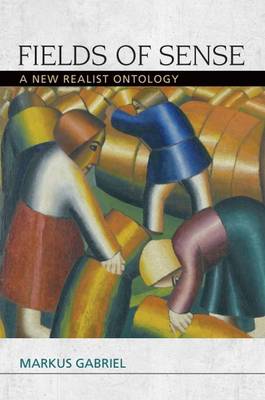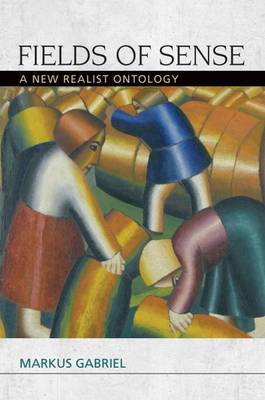
- Afhalen na 1 uur in een winkel met voorraad
- Gratis thuislevering in België vanaf € 30
- Ruim aanbod met 7 miljoen producten
- Afhalen na 1 uur in een winkel met voorraad
- Gratis thuislevering in België vanaf € 30
- Ruim aanbod met 7 miljoen producten
Zoeken
Fields of Sense
A New Realist Ontology
Markus (Chair in Epistemology, Modern and Contemporary Philosoph
€ 38,95
+ 77 punten
Uitvoering
Omschrijving
Markus Gabriel proposes a radical form of ontological pluralism that divorces ontology from metaphysics, understood as the most fundamental theory of absolutely everything (the world). He argues that the concept of existence is incompatible with the existence of the world and therefore proposes his innovative no-world-view.
Specificaties
Betrokkenen
- Auteur(s):
- Uitgeverij:
Inhoud
- Aantal bladzijden:
- 400
- Reeks:
Eigenschappen
- Productcode (EAN):
- 9780748692897
- Verschijningsdatum:
- 14/01/2015
- Uitvoering:
- Paperback
- Afmetingen:
- 157 mm x 232 mm
- Gewicht:
- 610 g

Alleen bij Standaard Boekhandel
+ 77 punten op je klantenkaart van Standaard Boekhandel
Beoordelingen
We publiceren alleen reviews die voldoen aan de voorwaarden voor reviews. Bekijk onze voorwaarden voor reviews.








